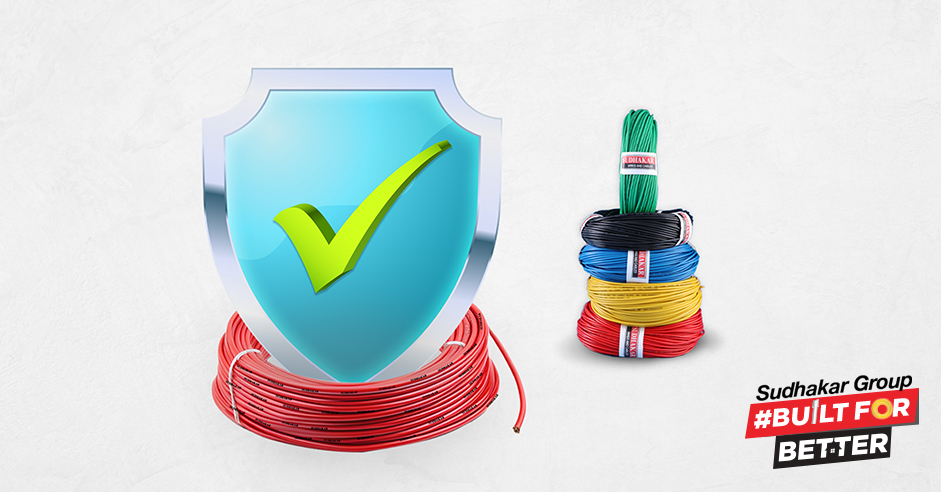Electrical wires are essential in modern life, powering homes, offices, industries, and entire cities. From lighting your home to powering electrical appliances, electrical wires form the backbone of all electrical systems. They connect power sources to every device we rely on, ensuring the seamless operation of technology and infrastructure. Without them, you couldn’t access energy sources that fuel our daily activities, from heating to entertainment. However, these electrical wires can pose serious risks if improperly maintained or installed correctly. Let’s discuss the importance of regular maintenance and safety measures to prevent hazards like electric shocks, fires, and system failures.
Where Are Electrical Wires Used?
Electrical wires are used in a wide range of applications, each serving a specific purpose based on their characteristics. Below are some common places where they are used:
● Homes and Residential Buildings: Electrical wires are essential for powering lighting, appliances, HVAC systems, and outlets.
● Commercial and Industrial Applications: They are used for wiring machinery, lighting, and communication systems.
● Automobiles: Electrical wires are crucial for powering various systems, including the engine, lights, and air conditioning.
● Telecommunication: Coaxial and other types of cables are used for data transmission, including internet and cable TV.
● Power Distribution Networks: Electrical wires are part of the grid that transports electricity from power plants to homes and businesses.
● Smart Buildings and Automation: Advanced wiring systems power integrated technologies, such as home automation systems, security alarms, and IoT devices.
Types of Electrical Wires We Offer and Their Uses
At Sudhakar Group, we offer a wide range of electrical wires designed for different applications, ensuring safety and reliability in all environments. As trusted wire and cable manufacturers, we provide high-quality options for every need. Here’s a breakdown of the types of electrical wires we offer and their uses:
1. FR (Flame Retardant) Wires: Flame Retardant wires are designed to reduce the spread of fire in case of short circuits or electrical failures. They are commonly used in buildings, industrial settings, and places where fire safety is a significant concern. They are resistant to catching fire, providing an added layer of safety.
2. FR LSH (Flame Retardant Low Smoke Halogen-Free) Wires: These wires are designed to emit very low smoke and no halogen gases when exposed to fire, ideal for
enclosed spaces like tunnels, aircraft, and public transport areas. Low smoke and non toxic fumes make them perfect for high-traffic public spaces.
3. Multicore Cables: Multicore cables consist of multiple wires within one jacket, making them ideal for applications that require more than one connection in a single cable. These are commonly used for power distribution and signal transmission. They have multiple conductors in one cable, reducing installation complexity.
4. Single-Core Cables: Single-core cables are used in applications where only one conductor is required, such as general wiring, circuit connections, and power distribution. These wires are simple and cost-effective, which is why they are used for basic electrical needs.
5. Flat Three Core Cables: These are often used for fixed wiring in appliances and lighting, offering a flat design that is easier to install in specific spaces. Since they are used for flat structures, they are ideal for installation where round cables may be too bulky.
6. Coaxial Cables: Coaxial cables are designed to carry high-frequency electrical signals with minimal interference, making them essential for telecommunications and broadband connections. They have excellent signal transmission for internet, TV, and radio connections.
Electrical Wire Maintenance and Safety Tips
● Regular Inspections: Ensure that all electrical wires are inspected regularly to check for signs of wear, damage, or corrosion. Worn-out wires are a serious safety hazard. ● Proper Installation: Always have a certified professional install or upgrade your electrical wiring to ensure it’s up to code and safe.
● Avoid Overloading Circuits: Overloading can cause wires to overheat and result in fires. Always check the maximum load rating of electrical wires and circuits. ● Use Appropriate Wires: Always use wires suited to the environment and purpose of your electrical system, e.g., FR or FR LSH wires for high-risk areas.
● Keep Wires Dry and Protected: Moisture can cause wires to deteriorate. Ensure all outdoor wiring is insulated and adequately protected.
● Turn Off Power When Repairing: Always turn off the main power supply before conducting any maintenance or repairs on electrical wires.
Conclusion
The importance of electrical wires in powering our modern world cannot be overstated. Whether you’re wiring a home, setting up an industrial facility, or ensuring safe communication systems, choosing the right wires is essential for safety and efficiency. As a trusted wire and cable manufacturer, we offer high-quality products designed to meet different needs. Proper maintenance, regular inspections, and the use of the right wires are key to preventing hazards and ensuring the longevity of your electrical systems. Invest in reliable electrical wires today for a safer, more efficient tomorrow.


